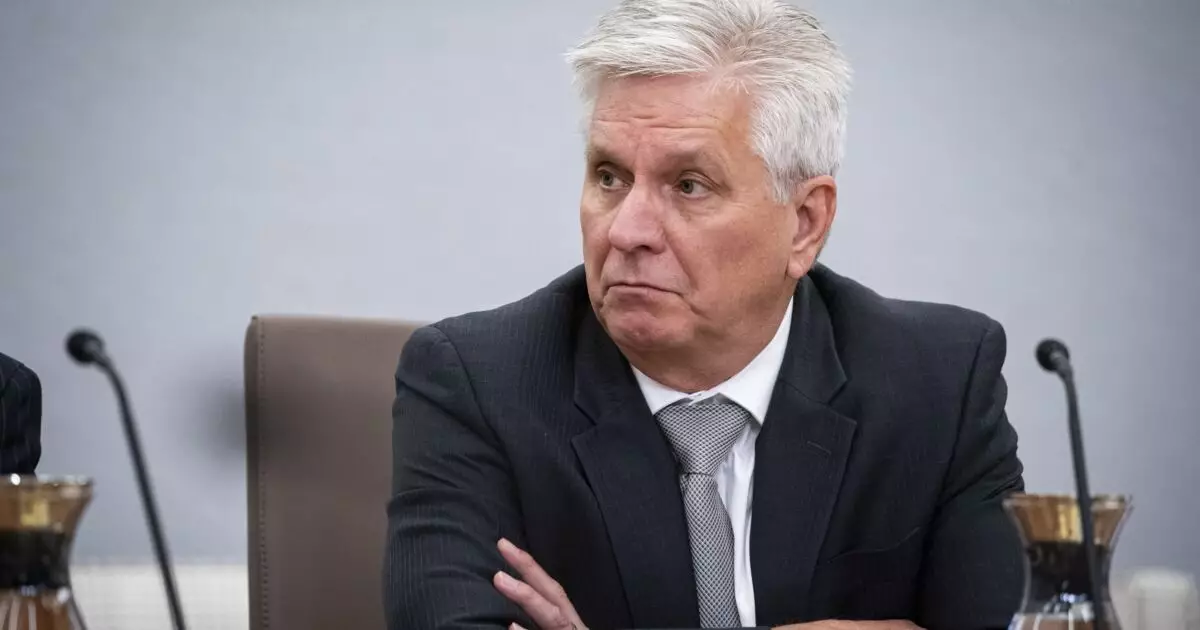When we discuss the financial health of a nation, the Treasury market often becomes the focal point. Recent remarks made by Federal Reserve Governor Christopher Waller highlight a serious concern for both investors and average citizens alike—the ever-growing disconnect between fiscal policy and the realities of the nation’s debt burden. Waller indicated that despite a troubling trend of increasing long-term bond yields, the Federal Reserve has no intention of stepping in. This refusal is not only bewildering but also raises questions about the sustainability of our fiscal policies. With treasury yields rising for the second consecutive month—10-year notes climbing two basis points this week—we have a clear signal that the market is growing uneasy.
It’s not just a question of numbers; it’s about trust. Investors are losing faith in the U.S. government’s ability to manage its finances. This distrust was intensified by weak bidding in a recent Treasury auction, igniting fresh fears reminiscent of the tumultuous bond market sell-off that occurred last April, following the initial tariff proposals under then-President Donald Trump.
Fiscal Discipline: A Word That’s Becoming Obsolete
Waller’s comments on the need for fiscal discipline couldn’t be clearer: the market is looking for tangible commitment to reducing the deficit. Yet, what we see instead is a glaring contradiction. Congress is moving forward with tax legislation expected to add nearly $4 trillion to the deficit over the next decade. This is not just a matter of political semantics; it fundamentally alters the landscape for investors and citizens alike.
The reality is alarming: after years of running $2 trillion deficits, the lack of fiscal responsibility is unsustainable. It’s almost as if our leaders are operating under the belief that they can ignore the basic principles of economics. While the stock market booms and short-term growth seems optimistic, the long-term implications enable crumbling foundations. As an advocate for center-right liberalism, it’s imperative to call for an urgent reevaluation of our fiscal priorities. The American public deserves better than a reactive approach to economic governance.
The Increasing Risk Premium
Waller’s insights underscore a terrifying trend we’ve observed—the demand for a higher risk premium from bond investors. This shift indicates that more and more investors are questioning the U.S.’s ability to manage its debt. A greater risk premium translates into higher borrowing costs across the board, directly impacting mortgages, loans, and ultimately, consumer spending. When Treasury yields rise, private market rates follow. This links back to the threat of higher interest rates stifling economic growth, limiting investment, and squeezing consumers.
The consequences of such an environment are dire. Economic activity could grind to a halt under the weight of escalating costs, and everyday Americans could find themselves trapped between rising expenses and stagnant wages. This scenario is not just theoretical; it threatens to materialize due to the indifference demonstrated by our legislative leaders toward fiscal accountability.
The Fed’s Limited Playbook
Waller aptly noted the limitations of the Federal Reserve’s tools in influencing this turmoil. The Fed’s primary weapon—the federal funds rate—has minimal impact on long-term yields, which are the driving force behind economic activity. Moreover, the prohibition against the Fed participating in Treasury auctions adds another layer of complication; it renders the central bank almost powerless in the current tumultuous conditions.
Why does this inaction persist? Congress established these parameters, but it’s time to reassess the implications of such stringent rules. We are in a climate rife with uncertainty, and it’s crucial that our financial institutions are empowered to respond to changing conditions. If Congress continues to tighten the reins on the Fed while allowing unsustainable fiscal policies to flourish, we are essentially marching toward an economic cliff.
Hope Amid Discontent?
Despite the dreary landscape, Waller expressed a degree of optimism regarding trade relations, suggesting that ongoing efforts could improve the situation. While it’s refreshing to see a glimmer of hope, the question remains: shall we place our bets on negotiations to save us from fiscal irresponsibility? With so much at stake, it feels like we are playing a high-stakes game of poker with taxpayer money.
As citizens, we must demand accountability for our representatives and strategies that prioritize fiscal responsibility and economic stability. The alarming trends in the Treasury market should not just be viewed as statistics; they represent a larger narrative regarding how we govern and allocate our resources. The needs of the American public demand urgency, yet what we witness instead is a dangerous status quo. It is time to rise to the occasion and insist on an economic policy that embraces sustainability, trust, and a vision for the future devoid of Uncle Sam’s overextended credit card.


Leave a Reply